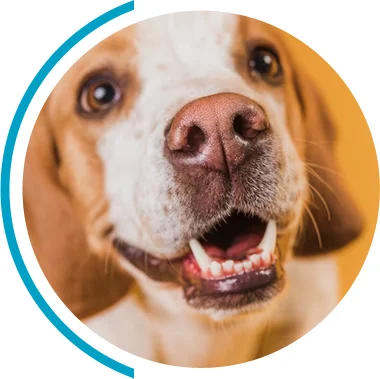Dog training is a crucial aspect of pet ownership, especially for dogs that exhibit signs of fear. If you reside in Costa Mesa and have a scared dog, understanding their fears and how to alleviate them can significantly improve their quality of life. This article explores various elements of dog training specifically tailored for fearful dogs, offering insights, techniques, and professional guidance.
Fear in dogs is a natural response to perceived threats, and it can manifest in various ways. A better understanding of the underlying issues may help dog owners develop effective training strategies. It is critical to acknowledge that fear is not merely a behavioral problem; it reflects the dog’s emotional state.
Several factors can contribute to a dog’s fearfulness, including:
Understanding these factors can assist owners in identifying the source of their dog’s fears and tailoring training approaches accordingly. For instance, dogs that have experienced trauma may require a more gradual and gentle approach to desensitization. On the other hand, breeds known for their sensitivity, such as the Greyhound or the Whippet, might benefit from a calm and structured environment that minimizes stressors. Recognizing these nuances can be vital in fostering a trusting relationship between the dog and its owner.
A dog’s fear can manifest in subtle or overt ways. Common signs of a scared dog include:
By recognizing these signs, dog owners can intervene sooner and develop a plan to help their fearful pup. Additionally, it’s important to note that fear can lead to more serious behavioral issues if left unaddressed, such as aggression or anxiety disorders. Observing your dog’s body language closely can provide critical insights; for example, a tucked tail or flattened ears can indicate discomfort. Creating a safe space for your dog, where they can retreat when feeling overwhelmed, is also essential in helping them cope with their fears. This safe haven can be a cozy bed in a quiet corner of the house or a crate that they associate with security and comfort.
Professional dog training can be particularly beneficial for dogs that exhibit fear-based behaviors. Trainers possess the knowledge and skills to address these issues, providing tailored solutions depending on the dog’s individual needs.
Professional trainers utilize various techniques to help alleviate fear in dogs. This may involve creating a structured environment where the dog feels safe and secure. Trainers often perform assessments to identify the root causes of fear and develop personalized training programs.
These programs may include exposure to fear-inducing stimuli in a controlled manner, ensuring that the dog gradually learns to trust the trainer and feel more comfortable.
Positive reinforcement is a cornerstone of effective dog training, particularly with scared dogs. This technique focuses on rewarding desired behaviors rather than punishing fear responses. By providing praise, treats, or toys when the dog exhibits courage, owners can encourage the dog to face their fears.
This method nurtures a positive learning environment and strengthens the bond between the dog and trainer or owner.
Implementing effective training techniques is essential for helping a scared dog overcome their fears. Various methodologies can promote confidence and security in anxious dogs.
Building trust takes time and patience. One effective approach involves consistent, gentle interactions. Engaging in positive activities, such as play or quiet time, allows the dog to associate their owner with positive experiences.
Using calm, reassuring tones during training sessions is vital, as dogs are sensitive to human emotions and tone of voice. Gradually increasing the level of exposure to feared situations while providing reassurance can significantly enhance the dog’s trust.
Desensitization and counter-conditioning are powerful tools for managing fear. Desensitization involves gradually exposing the dog to the source of fear in a controlled manner, decreasing their sensitivity over time.
Counter-conditioning, on the other hand, pairs the feared stimulus with something positive, such as treats or play, shifting the emotional response from fear to enjoyment. This combined approach can lead to significant improvements in a dog’s behavior and overall happiness.
Consistency and a supportive environment are key factors in maintaining progress for a scared dog. Implementing training techniques at home reinforces what professional trainers teach, ensuring continued improvement.
A safe and comfortable environment is crucial for a fearful dog. This may involve establishing a designated space in the home where the dog can retreat when feeling anxious. Providing a cozy bed, toys, and items that carry comforting scents can help create this safe haven.
Additionally, minimizing exposure to triggers, such as loud noises or fast movements, can significantly enhance the dog’s sense of security.
Consistency is essential when training a scared dog. Regular practice of techniques learned during professional training sessions is necessary for reinforcing positive behaviors. Involving all family members in the training process ensures a unified approach, which is vital for the dog’s development.
Setting small, achievable goals can help maintain motivation for both the dog and the owner. Regularly tracking progress and adjusting techniques as necessary will foster a continuously supportive and adaptive learning environment.
While many dogs can make progress through consistent training at home, some may require professional assistance to overcome more severe fears and anxieties. Recognizing when to seek help is critical for the well-being of your dog.
Severe fear can manifest in more concerning behaviors such as aggression, self-harm, or extreme withdrawal. If a dog exhibits these signs, it is vital to seek the guidance of a qualified professional who specializes in fear-based behavior.
Addressing these issues early can prevent them from becoming ingrained and unmanageable, ensuring a happier, healthier life for your dog.
When looking for a trainer in Costa Mesa, it’s essential to consider their experience and approach to handling fearful dogs. Look for trainers who use positive reinforcement techniques and have a solid track record of success with anxious pets.
Reading reviews, asking for recommendations, and ensuring the trainer’s methods align with your values and goals are vital steps in the process. A good trainer will create a tailored plan that addresses your dog’s unique fears and helps both of you on your training journey.
In conclusion, Costa Mesa dog training for scared dogs is a multifaceted approach that combines understanding, professional help, and consistent home practices. With the right strategies, you can help your fearful dog lead a more confident and enjoyable life.
If your beloved canine companion is struggling with fear and anxiety, remember that you’re not alone. At The Grounded Hound Canine Coaching, we understand the challenges you and your scared dog face. With a CTC from the Academy for Dog Trainers, an ABCDT from the Animal Behavior College, and specialized certifications in Separation Anxiety, we’re equipped to offer you the support and guidance you need. Our training philosophy is rooted in Patience, Kindness, and Consistency, ensuring that we build a strong bond of understanding between you and your dog. Don’t let fear stand in the way of a happy, confident life for your furry friend. Contact Us Today and take the first step towards a more peaceful and enjoyable relationship with your dog.

